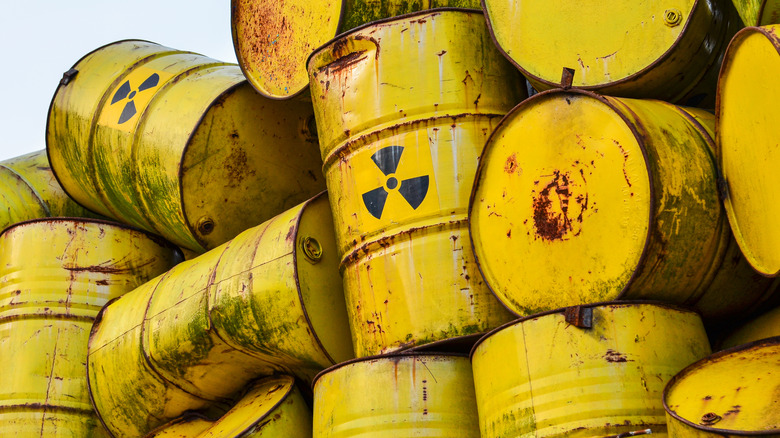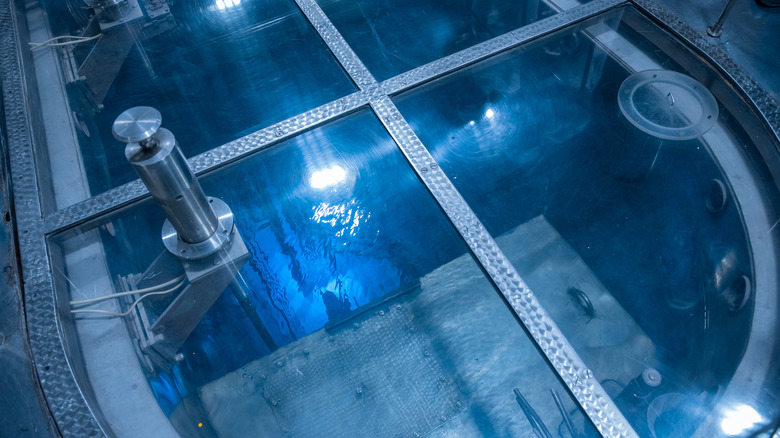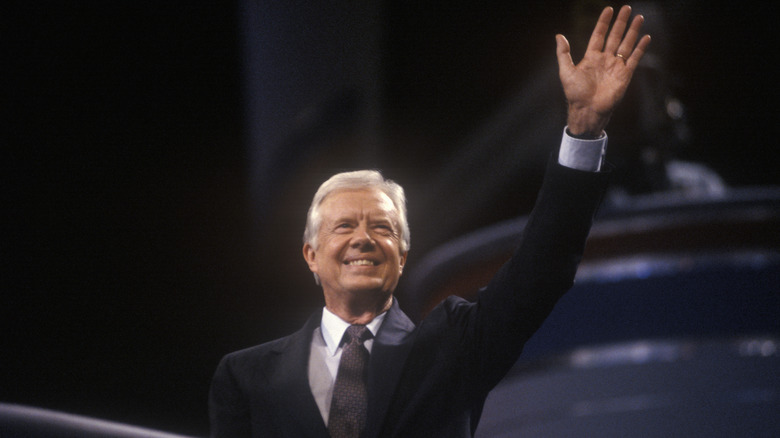Why Nuclear Fuel Recycling Is Banned In America
Despite not being a popular option with environmental organizations like Greenpeace, nuclear power has often been praised as a solution to several nations' energy problems. French energy giant EDF touts nuclear power as one of the most low-carbon forms of energy generation available. The uranium required to generate the power is not as scarce as you may believe, and a small number of power stations can produce enough electricity to meet a large nation's needs. The process is also quite efficient. A peanut-sized uranium pellet produces around the same amount of energy as close to a ton of coal. Several countries, including the United Kingdom, France, Japan, and the United States, currently have a significant portion of their energy needs met through the use of nuclear power. Countries like Britain are also planning to construct more plants to replace those that are aging out and increase the amount of power generated (via BBC).
But there are some downsides. A number of high-profile nuclear disasters like the one at Chernobyl in the 1980s and, more recently, the incident at Japan's Fukushima plant soured public opinion and had major impacts on the environment. There is also the issue of what to do with the waste that is produced. Although nuclear reactions don't produce greenhouse gases like the burning of fossil fuels does, the process isn't exactly clean. Highly radioactive waste is left over once the fuel is spent that has to be safely disposed of, and several creative solutions have been proposed over the years. The European Union has invested in lasers that can be used to destroy radioactive waste, it has been turned into glass for long-term storage, and sometimes it's just stored in a very, very deep hole. But why not just recycle the waste?
You can recycle nuclear waste
Nuclear waste can actually be recycled and reused as fuel. The practice is common in several countries, including France, Japan, Germany, Belgium, and Russia. The World Nuclear Association claims that up to 97% of nuclear waste (94% of which is uranium) can be recycled. Several types of reactors can use recycled fuel, and conventional reactors are capable of using fuel extracted from spent uranium and plutonium. For that reason, recycling efforts tend to focus on these elements. According to Energy.gov, there are also reactors in development that could run on fuel previously used by other nuclear reactors. The current recycling process involves separating usable plutonium and uranium from spent nuclear fuel and then mixing it with newly refined radioactive elements before forming fuel rods with the mixture.
Recycling is possible because a five-year period inside a reactor only uses around 10% of the potential energy of nuclear fuel sources like plutonium and uranium. If the World Nuclear Association's numbers are correct, up to 1,940 of the 2,000 metric tons of spent nuclear fuel the United States accumulates each year could be used again instead of being stored on-site in old power plants, winding up in a deep hole in the desert.
Why won't the U.S. recycle nuclear waste?
Plenty of nuclear-powered nations see recycling as a viable solution to their waste issues, so what is preventing the United States from joining them? The story starts back in the 1970s when Jimmy Carter was serving his first and only presidential term. Despite being famous for his peanut farming origins, Carter actually had an impressive nuclear physics background. While in the U.S. Navy, he served on the Sea Wolf, one of the first nuclear submarines. He studied nuclear physics at Schenectady's Union College, and he personally assisted the Canadian government in averting a disaster when one of the reactors at the Chalk River plant in Ontario was damaged (via PBS). Carter was also skeptical about nuclear recycling, and that skepticism remains the foundation of the U.S. nuclear recycling policy to this day.
Carter banned the recycling of nuclear fuel in the U.S. back in 1977, citing the expenses involved and the risks that spent fuel could be used to make nuclear weapons. This policy was recommended worldwide but rejected by other nuclear-powered nations, several of which currently recycle portions of their spent fuel.
Despite his qualifications, the oldest living president may have been wrong in this case. Used reactor fuel is difficult to convert into the material you're likely to find inside a fusion or fission bomb (via Brookings). France is one of the most nuclear-reliant nations on Earth and gets a large portion of its energy through recycling. Nuclear power is a potential way forward as the world looks toward carbon-neutral energy sources. With recycling off the table, the waste produced might remain an expensive and hazardous problem in the United States.


